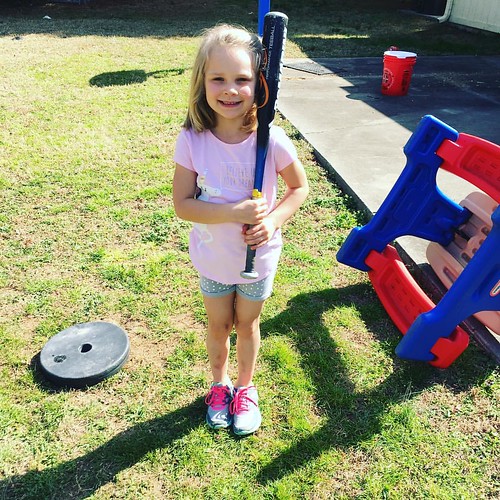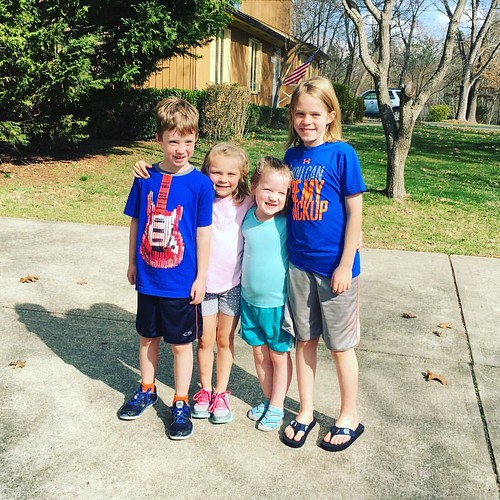A central figure in my tournament emails for the last eight (!) years has been Clark Kellogg. I used to laugh at Clark Kellogg, but over time I've come to really like him. He has a ready wit, is generous and kind with people, even on Twitter, and fearlessly (and sometimes hilariously) provides his commentary on the games. His work became an early jump-off point for me to make some jokes, perhaps in part because I was trying to make sports more important than they really are. Still, over time, my appreciation for Clark Kellogg has grown into a sincere fondness. We've never met, but I'm pretty sure even if he read the jokes I've made about him, he would roll with it and continue being himself. I'm thankful for the tournament and the connection it allows me with my friends. And I'm thankful for Clark Kellogg, who occupies a special place in my basketball-loving heart. Below are some of my longer Kellogg-centered comments over the last 8 years of facilitating a bracket challenge among my friends.
---------------------------------------------------
- "Agitating to ecstasy."
- "That's what penetration will get you."
- "You've got to worry then about the pseudo-penetration."
- "He's working hard and deserves a blow."
- "You have to protect yourself against their spurtability."
- And, as far as I can tell, Clark Kellogg coined the word "valutility" today.
- During the Baylor-St. Mary's game, talking about an old school coach: "He's older than tweeting. Older than this twittering age we live in." The Twitter allusion works as a clever comment on the coach's age and a wry comment on the perfunctory communication modern man engages in. Kellogg is adding his distinct voice to the postmodern heteroglossia of Twitter.
- On a player fouling out: "He's been Dairy Queened." His pedestrian explanation to Jim Nantz that he was creatively saying "DQ'd for disqualified," was just being modest. "He's been Dairy Queened" is a much richer and more insightful comment than it appears. It's a clear appeal to our collective subconscious and our oneiric archetype of the Dairy Queen experience. When do we go? For a treat. When do we get a treat? When our game is done. When is your game done? When you foul out. Jim Nantz might as well have been working the game with T.S. Eliot last night.
I leave you with this, from today's Big 10 Championship game, Clark Kellogg: "One more thing to consider: the mental, and the emotional, and the physical fatigue he's feeling from being tired."
- At one point last night, he said "Keep your head out of the popcorn." I would give you the context, but there wasn't any. I choose to take it as advice I can't yet appreciate.
- During the aforementioned offensive drought by Michigan St., he sagely noted "They're going to need shots to drop if they're going to come back." Taoist.
- He noted a couple of times that Duke's defense was "Saran Wrap tight." Clark Kellogg is better at Saran Wrap than I am.
- When Wichita State's pace seemed to frustrate Louisville's hapless offense, Kellogg offered "Unless Louisville can speed this game up, Wichita St. will keep doing what they're doing." You might think this is redundant, but read it to yourself again--it's as clear and profound as introductory physics. If Stephen Hawking were calling the game, he would say things like this.
- Malcolm Armstead had a tough game against Louisville. At one point, though, he spun his way up the court, almost losing the ball. Extra spins meant extra prefixes for Kellogg, who succinctly described Armstead's effort: "He did a nice job to re-retrieve it."
- Michigan was up 8 points with three minutes to go. Kellogg opined "If you're Michigan, your instinct is to ride with the parking brake on." At first I rejected this idea. That would never be anyone's instinct. But I've thought about it a lot. Here's my theory: a) Michigan is famous in part for its contribution to the auto industry. b) Improvements in car quality may have seriously reduced the need for auto mechanics. c) Riding with the parking brake on could stimulate the service economy necessary to maintain Detroit's most famous export. To conclude, I think Clark Kellogg was tying together our tendency to be careful with precarious leads and note the Wolverines' empathetic stance on our national shift from a manufacturing economy to a service economy.
- During a frenetic stretch during the first half, he exploded "You'd better keep your head up and stay out the kitchen. This one is full throttle." I don't have anything to add at this time, but I hope you'll keep it in mind
- Read it again. "Dayton has the ability with its reversible-clothing type players, inside and out to give Stanford all they can take." On the surface, it only says "Dayton has the ability to compete equally with Stanford." The richness of Kelloogg's work lies in the imagery and levels of language: I've had two concepts blended in my mind for the first time: reversible clothing (neutral for temperature) and modifiable clothing (for adapting to temperature changes). I've become enamored of the concept. Kellogg could make a Kickstarter campaign for reversible zip-off pants. I would buy some. Just like I buy the basketball players that they necessarily call to mind.
- Product potential aside, don't miss the balanced, evocative language of reversible: inside/out & give/take. This is composition, friends. Underestimate Clark Kellogg at your peril.
- [Mission Control]
- "Can you see them on radar, Corporal?"
- "No sir."
- "Might they be flying under our radar?"
- "I can't imagine how. We've --OHMYGOD THEY'RE UNDER THE SCREEN THEY'RE IN THE BUILDING THEY'R--" [scene]
- Kellogg, on Villanova's blowout of Iowa, said "In our house, we call that a woodshed, whether it's Word Streak or Words With Friends." Um ,OK. There's not even a vague mention of basketball there. At all. But let's dig deeper
- 'Woodshed' would have a base score of 15 in Words With Friends (16 in Scrabble).
- Depending on your luck with double/triple letter and word tiles, adjacent letters, and on whether you played all your tiles for 'woodshed' (bingo!), you could possible score 54, 33, or 87, which were Villanova's 1st half, 2nd half, and final scores, respectively. This is Kellogg at his best. Subtle, but with depth that rewards effort.
- Producer #1: "We've got 4 minutes to fill."
- Producer #2: "Let's go back to the touchscreen."
- Producer #2: "Too cliche'. We need something innovative."
- Producer #3: [snorts as he wakes from Wisconsin-induced nap] "No! Um, tangled, the. .. the strings are tangled THE PUPPETS are, uh . . . what?"
- Producer #1: "Genius! Call the puppet guys!"
- He has repeatedly referred to college basketball players being "brain neutral." This two-word combo has become my own personal Banach-Tarsky paradox. I don't know if brain neutral is good or bad. Sometimes I think it's an asset to be brain neutral. Other times, I'm convinced it's what keeps us from excelling. Am I "brain neutral" as I type this? I don't even know. As soon as you contemplate "brain neutral," you no longer are.
- A related linguistic subversion happened during the University of New Orleans-Mt. St. Mary's "First Four" game Tuesday night. Travin Thibodeaux (the most Louisiana name in the tourney) almost choked out a teammate after a costly turnover. Kellogg's comment was "They're getting closing to dropping hands there." At first, I thought he was misstating the slang "throwing hands" for fighting. But "dropping hands" is an even richer phrase. And the team that was in danger of dropping hands is known as UNO. UNO. As in, "draw four" -- the "First Four drawn" -- drop your hand in UNO and you lose all possibility of the sneak-attack Reverse-Skip-Draw-Two combo you have waiting for Grandma. UNO, you lose. You lose, UNO. How could that be accidental?
- I'm so tired but I can't sleep
- Standin' on the edge of something much too deep
- It's funny how we feel so much but we cannot say a word

